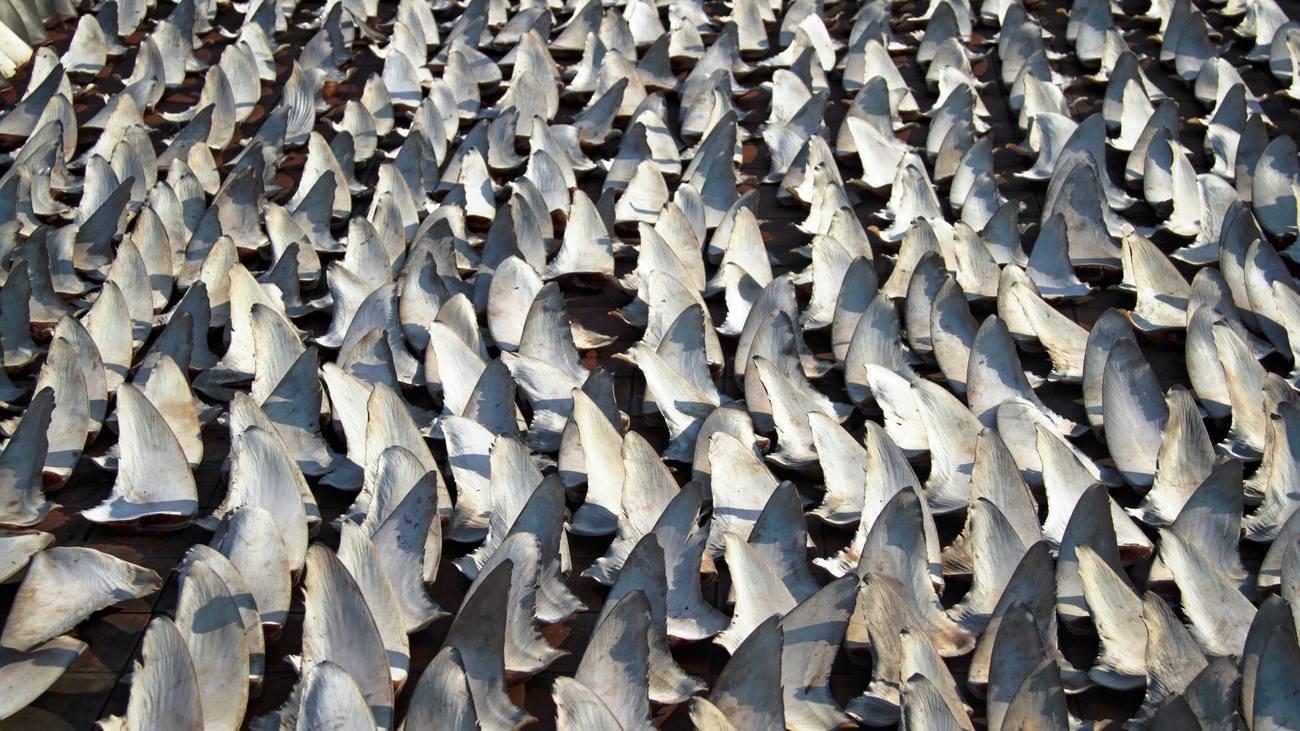Updates
How IFAW has helped animals and people during the Ukraine crisis
Learn morecountries announce push to fully regulate the global shark fin trade

(Washington, D.C.—23 June 2022) In response to the alarming decline of global shark populations, a group of countries from around the world have today announced a groundbreaking effort to control the unsustainable global trade in shark fins, which threatens to push these ecologically important predators to extinction.
The Government of Panama is leading this initiative in partnership with 40 countries around the world, with the Dominican Republic, Ecuador, Colombia, El Salvador, The Seychelles, The Maldives, Bangladesh, Sri Lanka, Senegal, Gabon, Israel, the United Kingdom, Syria and the European Union and its Member States (27 countries) all joining them in this effort. Decisions will be taken at the 19th meeting of the Conference of the Parties to the Convention on the International Trade in Endangered Species of Wild Fauna and Flora (CITES).
Panama is host of the CITES meeting in November, where 184 member nations will come together to make decisions on the governance of international trade of the world’s most threatened species. Panama themselves are proposing that CITES regulates the trade in all requiem sharks—a family that includes the Endangered gray reef shark, beloved by scuba divers throughout the world, as well as species such as the Dusky and Ganges shark where overfishing and the trade of fins has driven them even closer to the edge of extinction. Additional proposals look to secure similar protections for coastal hammerhead sharks, and guitarfish—flattened relatives of true sharks.
‘‘We’re encouraged to see CITES governments match their level of ambition to the level of threat seen for sharks and rays globally. These three proposals will take us from around 25% of species found in the fin trade regulated under CITES, to a situation where the vast majority of sharks traded for their fins in a half a billion dollar per year trade are subject to CITES oversight and controls,” said Luke Warwick, the Director of Shark and Ray Conservation at the Wildlife Conservation Society (WCS).
Recently released science has shown the urgency of this action, with 37% of all sharks (and closely related rays), and 70% of species traded for their fins already threatened with extinction—the second highest rate of threatened species of all animal groups on the planet. Many requiem sharks are key predators on the world’s coral reefs, but recent global surveys found them to be functionally extinct on 20% of reefs surveyed, further jeopardizing the health of these ecosystems that are already being devastated by climate change.
“If adopted, these listings would change the face of shark conservation, leading to proper protections and sustainable management for species that have been largely overlooked,” said Megan O’Toole, Director of International Policy at IFAW. “Panama and its partner governments are offering a clear pathway for the survival of these species. We hope that the rest of the world agrees, and offers sharks the long overdue attention these listings will bring.”
The CITES Conference of the Parties will make the final decision on these shark protections at its meeting held 14th–25th of November in Panama City, Panama. This will be the fourth meeting of the Conference of the Parties to CITES held in Central and South America and the Caribbean since CITES came into force on 1 July 1975, the first in Central America since 1979, and the first held in the broader region since 2002.
About WCS (Wildlife Conservation Society)
WCS saves wildlife and wild places worldwide through science, conservation action, education, and inspiring people to value nature. To achieve our mission, WCS, based at the Bronx Zoo, harnesses the power of its Global Conservation Program in nearly 60 nations and in all the world’s oceans and its five wildlife parks in New York City, visited by 4 million people annually. WCS combines its expertise in the field, zoos, and aquarium to achieve its conservation mission. Visit: newsroom.wcs.org Follow: @WCSNewsroom. For more information: 347-840-1242.
Press Contact: Stephen Sautner, +1 908 247 2585, ssautner@wcs.org
About IFAW (International Fund for Animal Welfare)
IFAW is a global non-profit helping animals and people thrive together. We are experts and everyday people, working across seas, oceans and in more than 40 countries around the world. We rescue, rehabilitate and release animals, and we restore and protect their natural habitats. The problems we’re up against are urgent and complicated. To solve them, we match fresh thinking with bold action. We partner with local communities, governments, non-governmental organizations and businesses. Together, we pioneer new and innovative ways to help all species flourish. See how at ifaw.org. Follow @ifawglobal.
Press Contact: Stacey Hedman, Washington DC, +1 508 737 2558, shedman@ifaw.org
Our work can’t get done without you. Please give what you can to help animals thrive.
Unfortunately, the browser you use is outdated and does not allow you to display the site correctly. Please install any of the modern browsers, for example:
Google Chrome Firefox Safari